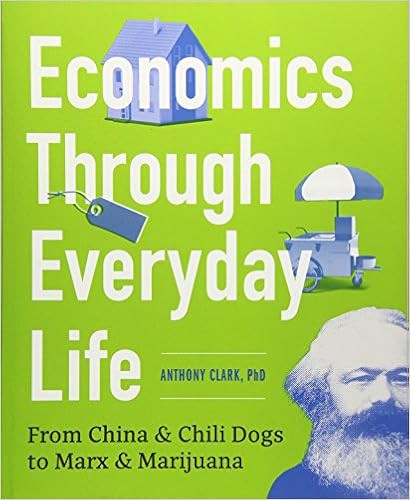
This book is a great read at any level as it describes economics in a way that you can easily understand. It reminds me of when I was in my studies and would come across a lecture or professor that was passionate about the subject and it made learning so much easier and fun. This book is only 175 pages and can be read without having to stop and ponder and meditate just to understand the deeper meaning. I love when authors possess this skill. It allows me to learn the subject material and form that critical foundation so I can start to properly analyze and form my own opinions based on solid facts.
Purposes of this book:
1) Explain economic terms and principles in the clearest way possible.
2) Present non bias and balanced analysis of the current economic issues nowadays.
CH 1
introduces some basic terms and concepts in the field of economics, and includes a brief overview of the major schools of economic thought.
CH 2
builds on that foundation by laying out additional basic concepts and helping you learn to see the world the way economists do.
CH 3
offers and overview of what markets are and how they're suppose to operate. The chapter also discusses why government intervention in markets is sometimes needed.
CH 4
explores key concepts and issues related to competition, monopolies, and antitrust laws.
CH 5
examines economics in the context of globalization and international trade, while also touching on the economics of immigration.
CH 6
presents some of the basic measures that economists and polcymakers use to stay informed about the state of the economy. The chapter also covers the basics of fiscal policy, monetary policy, and the workings of the Federal Reserve.
CH 7
discusses economics booms, bubbles, and busts, placing them in the broader context of business cycles. The chapter also examines the financial crisis of 2007-2008.
CH 8
takes a close look at the federal Social Security program, federal welfare programs, and the US healthcare system and how they affect the nation's taxpayers
CH 9
offers some parting thoughts, as well as some predictions about what the field of economics will look like in the future, and the implications of economic research and thought.
No comments:
Post a Comment